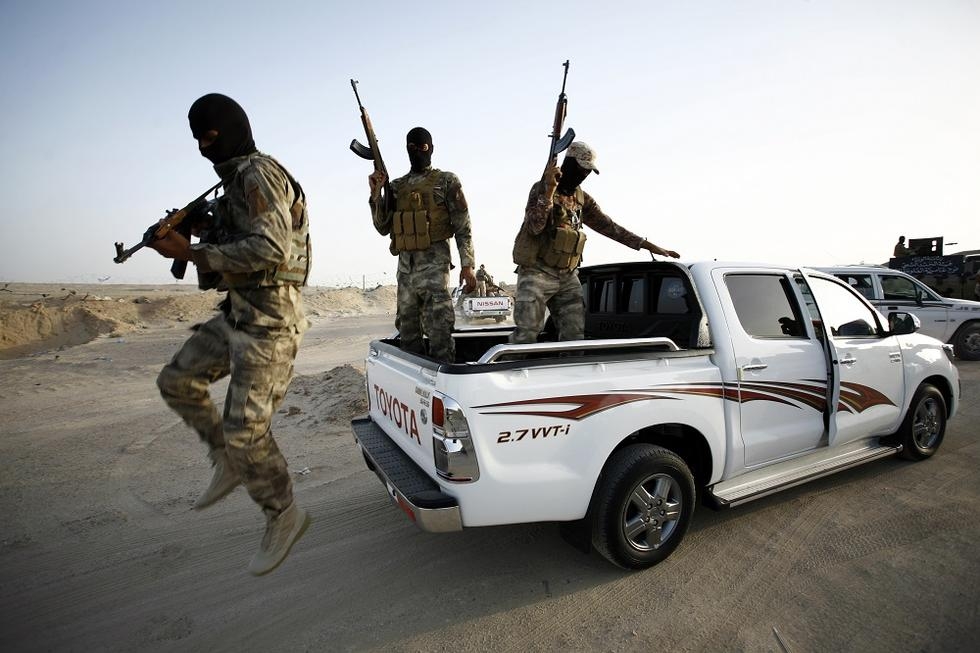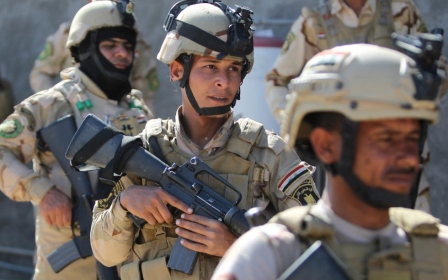Pro-Baghdad forces seize areas in southern Ramadi from IS

Iraqi security forces, backed by al-Hashid al-Shaabi Shiite militia, took control of two areas from Islamic State on Wednesday in southern Ramadi, a government official said.
The military operation was launched on Tuesday to retake the restive capital of the western Anbar province that fell to IS earlier this month. The three-day IS blitz, which saw the city fall after a year and a half of resistance, has been one of the worst military setbacks for Baghdad.
“Iraqi security forces, backed by al-Hashid al-Shaabi, managed to liberate al-Humeyra and al-Tash areas in southern Ramadi after fierce clashes in which 33 Daesh [IS] militants were killed,” Arkan Khalaf Tarmouz, a member of Anbar province’s council, told Anadolu Agency.
The Iraqi forces entered some parts of Anbar University, which is located south of al-Tash area, Tarmouz said.
A separate security source also told Anadolu Agency that “army forces managed to repel three Daesh suicide car bomb attacks south of Fallujah” some 50 kilometres east of Ramadi.
However, the Baghdad-led Operation ‘Labbayk ya Hussein’ in the largely Sunni Anbar province has come under fire for possibly stoking sectarian fears.
The operation's name translates to 'I am at your service, Hussein' in reference to Prophet Muhammad’s grandson, who Shiites believe should have become the leader of all Muslims due to his blood claim but who was killed at the Battle of Karbala by fighters loyal to the Umayyad leaders in Damascus.
Hussein is a revered figure by both Sunnis and Shias, but has become more associated with Shiite Muslims who commemorate his death every year.
Prominent Iraqi Shiite cleric Muqtada al-Sadr on Wednesday said that the operation “may flare up the situation” and added that “such names will be misunderstood for sure”.
“That is why every person who loves the homeland and rejects sectarianism should not recognise these names,” said Sadr, whose own paramilitary organisation, Saraya al-Salam, is involved in operations against IS.
"Hussein is a national symbol and a prince of jihad ... but we don't want him to be used by the other side to claim this is a sectarian war.”
Sadr instead suggested that the name of the operation be changed to ‘Labbayk ya Anbar’ or ‘Labbayk ya Saladin’ which roughly translates to 'in the service of Anbar' or 'in the service of Saladin', the first sultan of Egypt and Syria best known for rolling back Crusader gains.
The US has also criticised the name, with Pentagon spokesman Colonel Steve Warren calling the label “unhelpful”.
"We've long said... the key to victory, the key to expelling ISIL from Iraq is a unified Iraq," Warren said, using an alternative acronym for IS.
Middle East Eye propose une couverture et une analyse indépendantes et incomparables du Moyen-Orient, de l’Afrique du Nord et d’autres régions du monde. Pour en savoir plus sur la reprise de ce contenu et les frais qui s’appliquent, veuillez remplir ce formulaire [en anglais]. Pour en savoir plus sur MEE, cliquez ici [en anglais].




